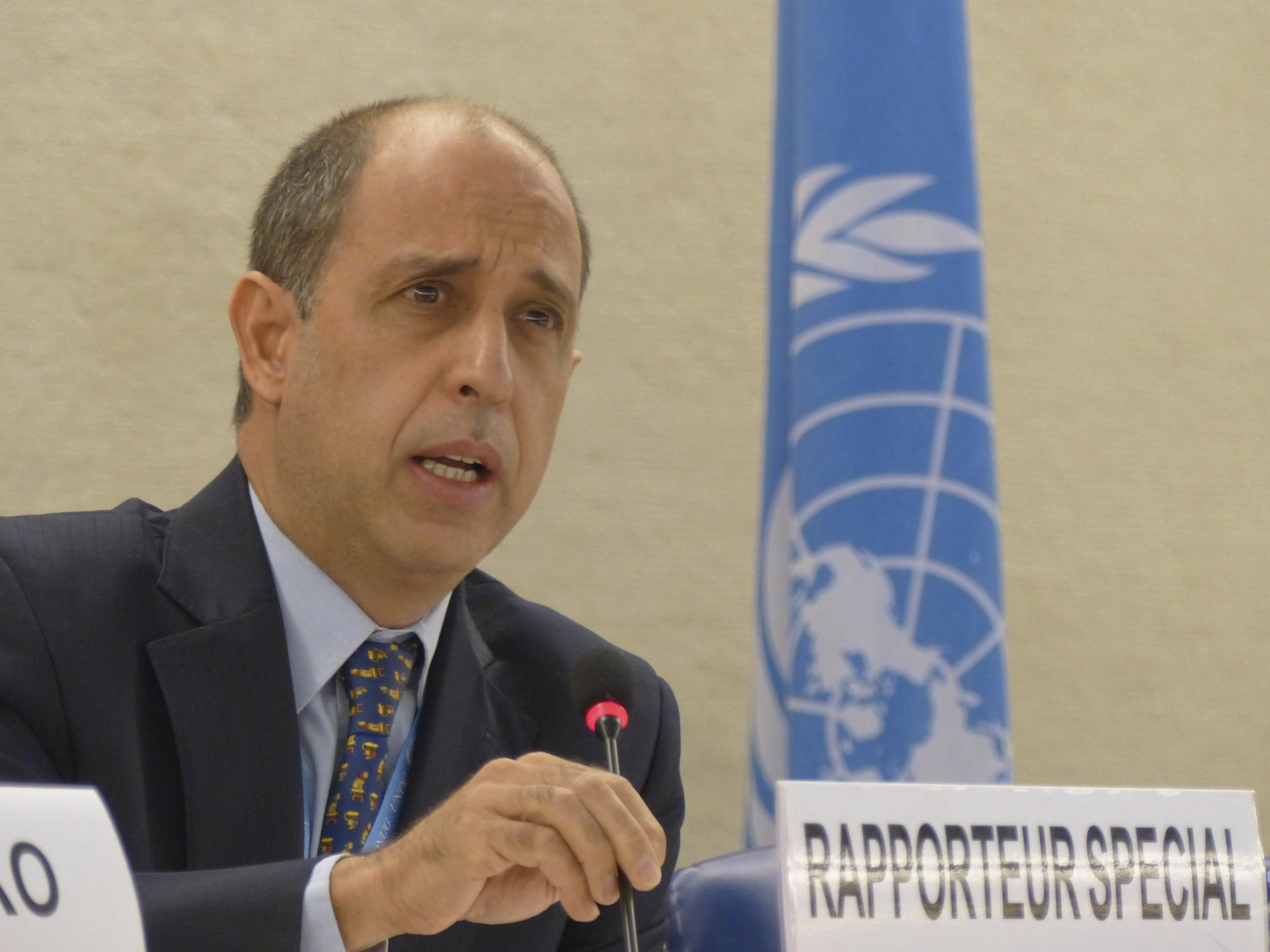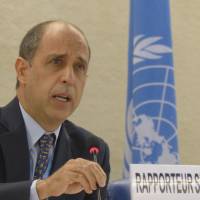North Korea boycotted a U.N. review of its human rights record Monday, as an investigator said an escalation in hostilities on the divided peninsula has further closed off opportunities for dialogue with Pyongyang's isolated government.
The U.N. Human Rights Council held a two-hour session on abuses in the Democratic People's Republic of Korea (DPRK), where rights experts called for action against perpetrators of crimes against humanity documented in a 2014 U.N. report that detailed the use of political prison camps, starvation and executions.
"We are not participating in any meeting on DPRK's human rights situation because it is politically motivated," said Choe Myong Nam, Pyongyang's deputy ambassador to the U.N. in Geneva.
U.N. special rapporteur on human rights in the DPRK Tomas Ojea Quintana said he regrets the decision but is still seeking engagement with North Korea.
Rising political and military tensions should not shield ongoing violations from international scrutiny, he said.
"There are no quick fixes or instant solutions to tackle human rights abuses of the scope and nature that has been reported for a very long time in the DPRK," he told the 47-member forum. "Military tensions have brought human rights dialogue with the DPRK to a standstill."
Between 80,000 and 120,000 people are held in four known political prison camps in North Korea and hundreds of families in South Korea and Japan are looking for missing relatives believed abducted by North Korean agents, Ojea Quintana said.
Sara Hossain, a member of the council's group of independent experts on accountability, said the U.N. should consider ways of prosecuting those responsible for human rights abuses in North Korea, possibly by creating an international tribunal.
"The groundwork for future criminal trials should be laid now," she said.




















With your current subscription plan you can comment on stories. However, before writing your first comment, please create a display name in the Profile section of your subscriber account page.